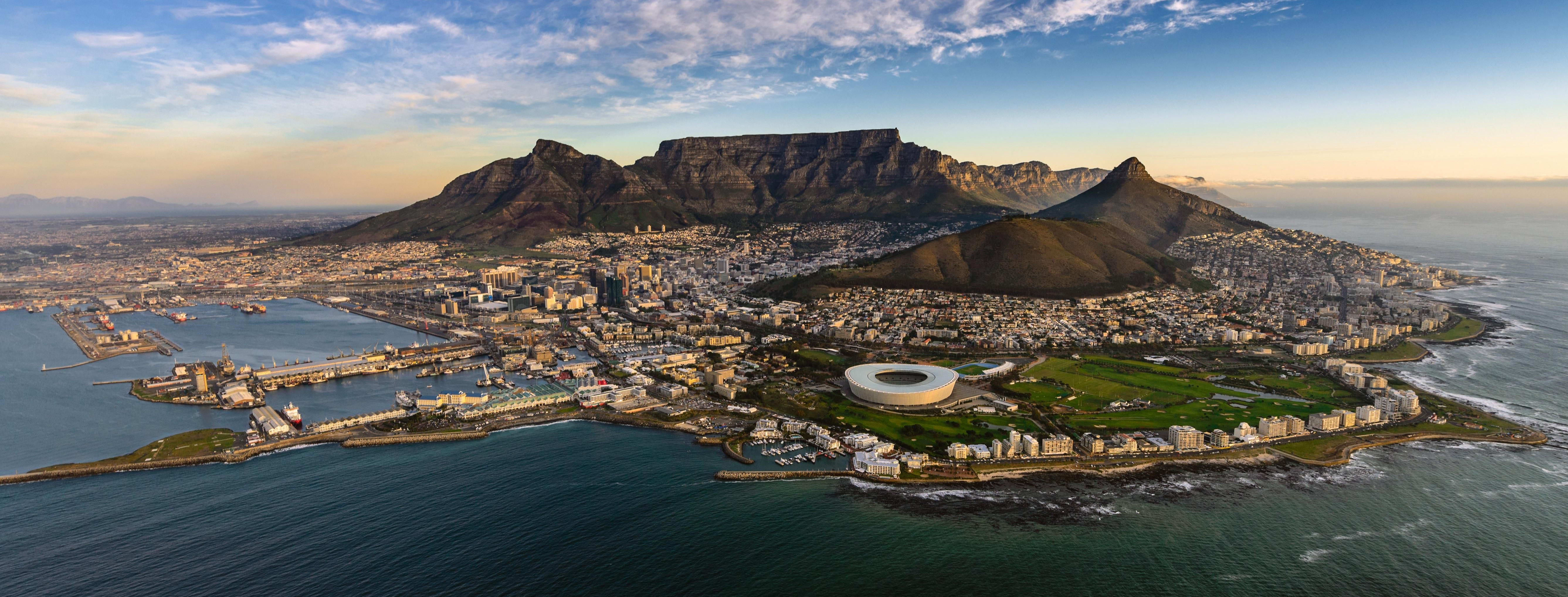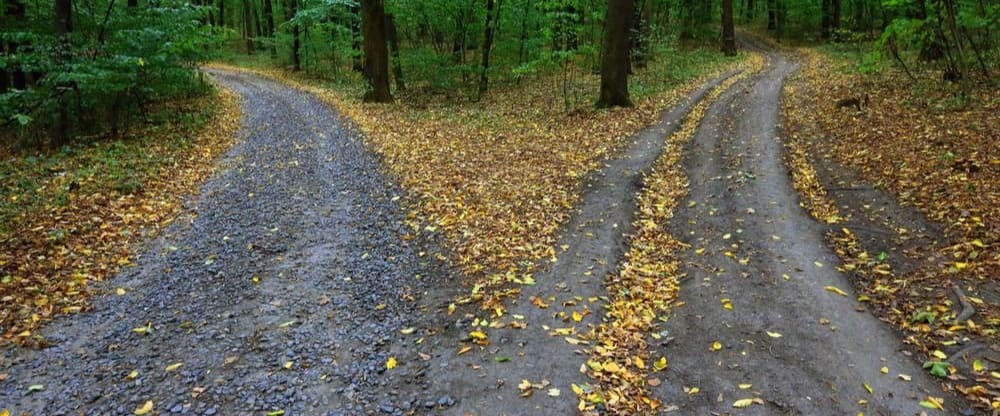Why You Should Study in South Africa
More and more students are traveling to South Africa to pursue their academic ambitions. In fact, 45,000 international students enroll in South African universities every year, and the number is set to continue rising. Students are attracted to the country's world-class universities, diverse cultures, and natural beauty. Moreover, international students have realized studying in South Africa can prove more affordable than other international destinations. So if you're looking for an excellent education, as well as a little bit of adventure, then here's what you need to know about studying in South Africa.
- Study Abroad

More and more students are traveling to South Africa to pursue their academic ambitions. In fact, 45,000 international students enroll in South African universities every year, and the number is set to continue rising. Students are attracted to the country's world-class universities, diverse cultures, and natural beauty. Moreover, international students have realized studying in South Africa can prove more affordable than other international destinations.
So if you're looking for an excellent education, as well as a little bit of adventure, then here's what you need to know about studying in South Africa.
It’s one of the most beautiful places in the world
South Africa is home to some of the world’s most stunning natural scenery. Nature reserves, amazing mountain ranges and waterfalls, and miles of beautiful coastline - South Africa has it all. Some of the most famous spots include Lisbon Falls in Mpumalanga, where the 90-foot waterfalls crash down into a beautiful gorge, and The Valley of Desolation near Graaff-Reinet, a vast nature reserve that boasts rich fauna and some of South Africa's most fascinating species, including the endangered Cape Mountain Zebra. Wildlife lovers can also go on expeditions to see big cats, southern white rhinos, blue wildebeest, kudus, impalas, hyenas, hippopotamuses, and South African giraffes.
Although much of South African remains untouched by the modern world, the country faces several environmental challenges created by overpopulation, sprawling urban developments, and climate change. As such, South Africa is an ideal destination for students interested in conservation, development, or sustainability studies.
Value for money
Government initiatives within the last 10 years have brought the country's academic institutions on par with global education standards. Many South African colleges have faculties staffed with leading academics, as well as state-of-the-art learning resources and infrastructure. Moreover, South African universities offer real value for money. International students can save significant amounts every year due to relatively low course fees, the reduced cost of living, and favorable exchange rates, which means their money is going even further.
To this into perspective, first-year tuition fees to study law at the University of Johannesburg are around R31,800, which equates to about $2,250.
Applying for your visa
The South African government has made efforts to make applying for a visa as straightforward as possible, although there are a few things you still need to consider. Firstly, you need to apply for study permits from the South African High Commission, Embassy, or Consulate in your own country. Study visas are granted for courses at specific institutions, so make sure you've got proof of a formal offer before you apply. Prospective students are always advised to apply for a visa as soon as possible. The entire process takes around six to eight weeks, but it's best to get your application in early in case of any delays or complications. South African universities will not register any student until they can produce a valid study permit.
A vibrant and diverse country
South Africa is a vibrant and diverse country, making it an excellent choice for students looking to immerse themselves in new cultures. 80% of the population self-identify as black Africans, who are made up from numerous ethnic groups including Zulu, Xhosa, Sotho, Bapedi, Venda, Tswana, Tsonga, Swazi, and the Ndebele peoples. The remaining 20% consists of people with Dutch, German, and British descent, as well as international students from every corner of the globe. So although South Africa has 11 official languages, you’re likely to hear many more, including lots of English. The majority of university courses are taught in English, which is also the primary form of communication between the county's wide range of ethnic groups.
A friendly and welcoming place
South Africans are renowned for their warm and welcoming nature. It's not unusual for the natives to strike up conversations with strangers in the middle of the street or while queuing up at the store. For some international visitors, such familiarity can be slightly unnerving, but most quickly learn that this open and friendly approach to life is part of South Africa's unique charm. And if you are ever struggling to come up with a conversation point, just ask the locals about sport. South Africans are sports-mad. In fact, sport is pretty much the country’s 12th language. Cricket, rugby, and football are the most popular pastimes. Fans support their beloved teams with a passion unrivaled in much, or even all, of the world, often turning games into something that looks more like a carnival. Expect to see some fantastic costumes, tribal drumming, singing, and of course the vuvuzela, the brightly colored horn made famous during the 2010 World Cup, held in South Africa.
And the food is pretty amazing. South African cuisine is as diverse as it's people, drawing influence from the indigenous cultures, it's colonial past, and even from as far away as India and Indonesia. Big cities like Cape Town and Johannesburg are famous for their restaurants and independent eateries that offer visitors an authentic taste of South African at very reasonable prices. For international students, eating out isn't just a luxury; it's an essential part of their South African experience.
A range of unique learning opportunities
South African universities are divided into three categories: traditional universities, which offer theoretically-oriented degrees; universities of technology, otherwise known as ‘technikons’, which provide vocational degrees; and comprehensive universities, which take a combined approach. Three of its institutions rank within the best 500 universities in the world. And with dozens of more world-class institutions, South Africa has the strongest university system on the African continent.
Over one million students enroll in South African universities every year. Health and education are among the most popular courses of study, while many other students opt for engineering, business and economics, and computing. Alongside these more traditional subjects, South African universities offer students unique learning opportunities in exciting new fields like environmental conservation, development studies, and animal management. While institutions in other countries provide the same programs, few can boast such easy access to nature reserves or conservation spaces where students can work alongside professionals and local communities. Via placements or volunteer opportunities, students help park rangers monitor endangered species, as well as working on projects like road maintenance or soil erosion control, which are vital to maintaining a safe and sustainable natural environment.
A few things to consider
South Africa is still a country in transition. Apartheid was still enforced until as recently as 1994, and although much has been done to create a more cohesive society, inevitable tensions still exist. Poverty and unemployment are still widespread in many areas, which brings another set of problems, including high levels of AIDS/HIV infections and crime. It is wise to familiarise yourself with the local area as soon as possible, stay away from any no-go zones, and avoid drawing too much attention to yourself until you've figured out the lay of the land.
None of this should deter you from a South African adventure. Vast parts of the country are perfectly safe for locals, tourists, and students alike.
Studying in South Africa is a once in a lifetime opportunity, and earning a formal degree is only a small part of this unique learning experience. Outside the classroom and way beyond the campus, South Africa is packed with diverse cultures, amazing people, ancient history, and rare and exotic wildlife. You'll also get a chance to see a nation developing before your very eyes. And who knows, you might end up making your own small contribution to this fascinating country.
Find your perfect program
Use our search to find and compare programs from universities all over the world!
South AfricaFind your perfect program
Use our search to find and compare programs from universities all over the world!
South Africa
Ashley Murphy
Author
After graduating with a degree in English literature and creative writing, Ashley worked as a bartender, insurance broker, and teacher. He became a full-time freelance writer in 2016. He lives and writes in Manchester, England.
Find a program in these categories
Read related articles

What International Students Need to Know about the Community College Initiative Program

Four Reasons to Study Off The Beaten Path in The US
